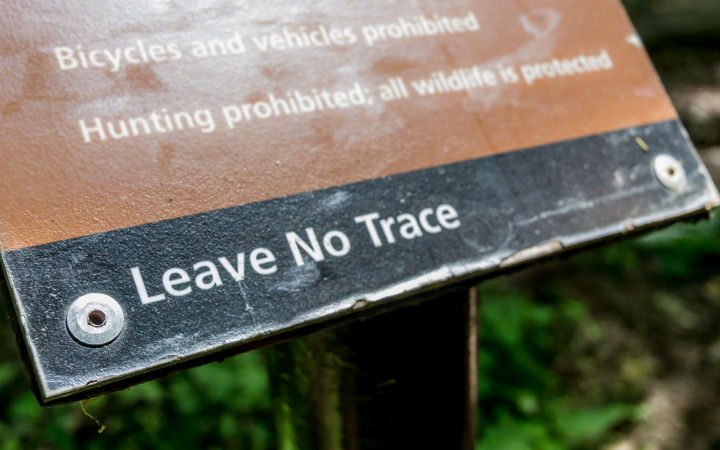Today’s Wonder of the Day was inspired by Aspen. Aspen Wonders, “polluting trashing the planet and littering” Thanks for WONDERing with us, Aspen!
Do you like to go hiking in the woods? For many kids, there's nothing quite like the excitement of exploring the forest. Not only do you get some great exercise, but you can discover all sorts of interesting things, from mushrooms and frogs to owls and trees.
When you enjoy recreational activities, such as hiking, camping, and boating in the great outdoors, you're making yourself at home in someone else's home. Have you ever thought of it that way? The plants and wildlife you encounter live in those areas that you're merely visiting.
How would you feel if the opposite occurred? Wouldn't it seem strange to be sitting at home on the couch watching television, only to have some birds, a squirrel, a raccoon, and some trees make their way through your house?
What would you think about their presence in your home? How would you feel if they tore up the place and left trash on your living room floor? You probably wouldn't be very happy. Can you use that same mindset to imagine what kind of impact human beings can have on the natural areas they visit?
Over the course of the last century, views have changed dramatically regarding how humans interact with nature. Long ago, wilderness areas were places to be explored and then exploited for their natural resources. Today, however, many of these areas are protected as state and national parks.
After World War II, people began to advocate for minimizing human impacts on the environment. As advances in technology led to a tremendous increase in outdoor recreation activities, those groups charged with care and maintenance of the nation's natural resources began to teach people how to enjoy nature while having a minimal impact on the land. In 1987, the United States Forest Service, the Bureau of Land Management, and the National Park Service combined efforts to produce a guide called "Leave No Trace Land Ethics."
Today, the Leave No Trace principles remain as important as ever. They continue to be championed by state and national parks, conservation groups such as the Sierra Club, outdoor enthusiasts like the Boy Scouts of America, and an organization dedicated to teaching others these principles known as the Leave No Trace Center for Outdoor Ethics.
So how do you enjoy nature without leaving a trace? Simply do you best to follow the seven principles of Leave No Trace outdoor ethics. For example, before you start into the woods, you should first plan ahead and make appropriate preparations. When you're prepared, you're less likely to have to make changes to the environment you find yourself in.
When you go hiking or camping, stay on durable surfaces. Stick to established trails and camp sites. When you go off trail, you run the risk of trampling areas that may be delicate or endangered. You should also always remember to dispose of trash properly. You wouldn't want a raccoon to leave his trash in your living room, so don't leave food wrappers or empty plastic bottles in his home!
When you find a deer antler or a really cool rock, take a picture of it. But leave it where it is. It's a piece of wherever you are and should stay there. The same goes for pieces of wood. Don't remove firewood from a forest area, and don't bring in firewood from somewhere else. Try to use alternatives to fires or learn how to create low-impact fires.
Finally, be respectful of wildlife, as well as other recreational users. You're in someone else's habitat, so be on your best behavior and treat others — both humans and animals — like you would want to be treated.
If you follow these simple guidelines, you'll maximize your enjoyment of the great outdoors while minimizing your impact on it. When you venture into the wild, take only pictures and leave only footprints. Can you learn to enjoy nature while leaving no trace that you were ever there?




